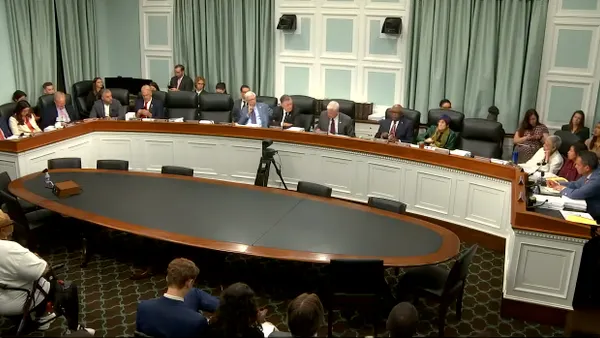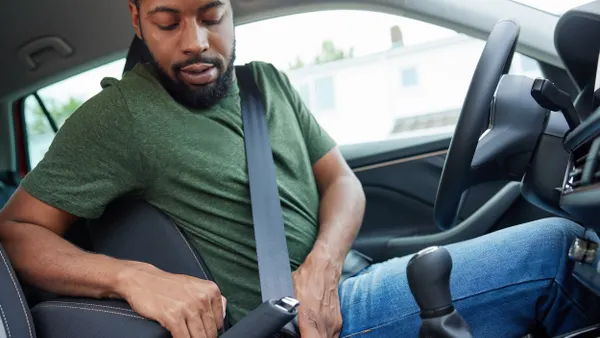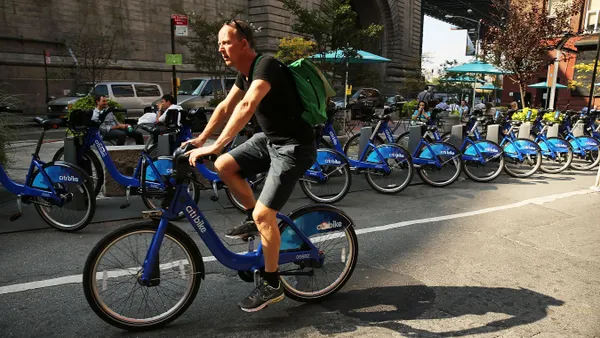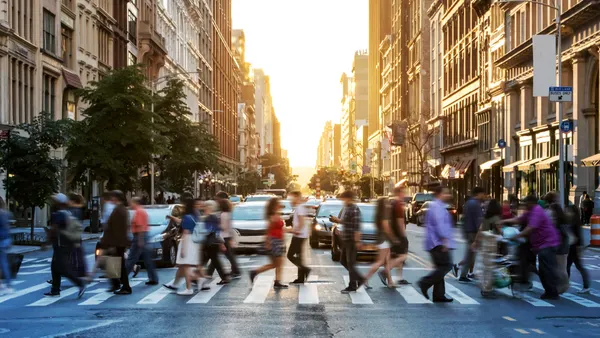Dive Brief:
- The Department of Homeland Security (DHS) has granted $88 million to transit agencies to prevent terrorism and boost resilience of transit infrastructure, with a heavy focus on rail systems.
- Some agencies receiving a portion of the funding through the Transit Security Grant Program (TSGP), according to Progressive Railroading, are:
| Massachusetts Bay Transportation Authority (Boston) | $6.9 million |
| Chicago Transit Authority | $10.7 million |
| Los Angeles County Metropolitan Transportation Authority | $6.2 million |
| New York City Police Dept. (to patrol the MTA system) | $18.3 million |
| San Francisco Bay Area Rapid Transit | $6.8 million |
| Washington, DC Metropolitan Area Transit Authority | $5.4 million |
- The TSGP funding is one allocation of the $345 million issued to assist cities, states and other entities with preparedness programs. DHS also provided $10 million through the Intercity Passenger Rail - Amtrak Program and $2 million through the Intercity Bus Security Grant Program to protect against terror attacks and enhance infrastructure resilience, in addition to $580 million through the Urban Area Security Initiative to increase regional preparedness in 29 high-density, high-threat areas.
Dive Insight:
When thinking of transit agencies' financial commitments, perhaps the first thing that comes to mind for outsiders is ongoing maintenance and upgrades to keep the system running safely and efficiently. After that, maybe they would name transit vehicle upgrades to lower carbon emissions and make the system more environmentally friendly, such as the electric-battery bus projects sharing a portion of the $84.5 million granted through the Federal Transit Administration's Low- or No-Emission Grant program.
For many people, security isn't one of the top financial requirements that comes to mind for transit, though many transit agencies spend countless hours preparing for and trying to prevent terror attacks. Sometimes these efforts are rolled into general "safety" initiatives, but they carry a terrorism-focused element nonetheless.
Chicago, for example, announced $33 million in safety and security upgrades this year, including 1,000 new security cameras and upgrades to 3,800 others. The consideration is more acutely obvious during citywide or national events, such as the intricate planning Minneapolis' Metro Transit conducted to implement enhanced light rail security screening for this year's Super Bowl.
Even though it can be an invisible expense to those not in the know, the financial obligations related to terrorism prevention and infrastructure resilience can create a burden on agencies. The $88 million infusion from DHS will help those public safety projects within transit systems progress. San Francisco's BART announced it will use the funding to upgrade outdated security cameras and install equipment to connect the underground transit radio equipment to radio systems throughout the region, allowing first responders to maintain communication when they're in the subway system.










